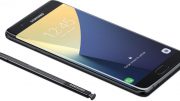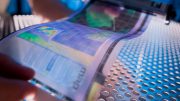Samsung Electronics announced an $8 billion deal on Monday to buy Harman International Industries, marking a major push into the auto electronics market and the biggest overseas acquisition ever by a South Korean firm.
The transaction highlights Samsung’s efforts to break into the high-barrier automotive industry where it has little track record and also marks a strategic shift for the electronics company, which has previously shunned big acquisitions.
“An M&A deal this big is a first for us. But it shows that under Jay Y. Lee, the company is changing and open to new ways to grow,” a source familiar with the deal told Reuters, referring to Samsung Electronics’ vice chairman.
The purchase of the Stamford, Connecticut-based maker of connected car and audio systems is part of Samsung’s search for new growth areas as its smartphone business – scarred by the withdrawal of the fire-prone Galaxy Note 7 – slows.
The greater use of electronics and software in vehicles, and the ability of cars to connect to smartphones and other devices, is offering technology companies with new business opportunities.
“We have been studying the automotive market for some time. We conclude that organic growth will not get us where we want to go fast enough,” Young Sohn, President and Chief Strategy Officer of Samsung Electronics, said on a conference call.
“Samsung will not get into the business of manufacturing cars,” he said.
Samsung, a maker of chips, displays, smartphones and TVs, agreed to acquire Harman for $112.00 per share in cash, a 28 percent premium to the U.S. company’s closing price on Friday.
Harman shares rose 25.6 percent to their highest level in more than one year.
“Harman was missing, in our opinion, a meaningful presence in displays and cockpit electronics; Samsung has these,” Baird Equity Research said in a report.
Samsung agreed to acquire Harman for $112.00 per share in cash, a 28 percent premium to the U.S. firm’s closing price on Friday.
“Samsung is using its huge cash pile to pull ahead of rivals in the auto technology market. But it remains to be seen whether Harman will be able to grow into a company that will be able to compete with the likes of Bosch and Continental,” said HDC Asset Management fund manager Park Jung-hoon.
Harman’s products, which provide infotainment, telematics, connected safety and security services, are used in more than 30 million vehicles made by automakers such as BMW, Toyota Motor Corp and Volkswagen (VOWG_p.DE), according to its website.
Harman earns around two-thirds of its revenue from its automotive-related business, and its automotive order backlog as of end-June stood at $24 billion, more than three times annual sales of $6.9 billion in fiscal 2016.
Samsung created an automotive electronics business team a year ago to look for opportunities in this area. This year it invested $450 million in Chinese automaker and rechargeable batteries firm BYD Co Ltd.
Separately, Samsung has held talks with Fiat Chrysler Automobiles (FCA) over a potential sale or partnership for the latter’s Magneti Marelli auto parts maker, sources have said.
(Reporting by Hyunjoo Jin and Miyoung Kim; Additional reporting by Rishika Sadam in Bengaluru; Editing by Edwina Gibbs, Jacqueline Wong and Jane Merriman)





yes